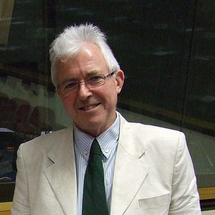by John Bryden, 23/02/2014
Now that we have ten years of experience with ICRPS, there is room for diversity of views on the future of ICRPS. For my part, I think it remains a very robust model that has stood the test of time as a self-supporting entity which is a creature of its Faculty and Students rather than of the bureaucratic academic institutions that they are located in. Indeed, one strength has been its freedom from the heavy hand of institutional agreements and bureaucracy.
Yet there are pressures for change. The first and probably most important of these is the financial situation, which is making it very hard to find a balance of students and faculty from the different partners and countries involved as well as raising the hurdles for hosting institutions and faculties.
Second, there are numerous opportunities to expand membership in the consortium, especially with universities in the US as well as countries outside Europe and North America. This would inevitably increase the number of students and faculty involved possibly creating problems finding venues, and reducing the sense of collegiality among participants. A related issue is the changing world outside, and especially the dynamism of the BRICS, raising the question of whether there is a case for including at least some BRICS partners in ICRPS and also developing the curriculum accordingly. Tony Fuller, ensconced as he is in the top rural universities in China and as Visiting Senior Professor at the China Academy of Sciences, might again be useful in this respect. So too might my colleagues in the Human Economy Programme at Pretoria University. The fourth concern is the largely overlooked issue of on-line courses and distance learning, which has always been in the background, but has not yet reached the foreground. This could include a real effort on virtual study tours or case studies, as well as summer schools. Both of these would certainly require a source of funds, but a modest one. Fifth, we have organized follow up activities for ICRPS alumni, but on a piecemeal or ad hoc basis. Can we do more to get a joint PhD programme going? Can we organise more and more secure placements with international organisations like OECD? Finally, what about that Journal? Is it time to revisit that proposal, which was quite well researched, once again? If so who will be able to take it on?
A proposal for an ICRPS task force to be formed to undertake regional or sub-regional analysis of rural policy issues on a contractual basis, probably in association with OECD or EU, and a number of volunteers from the Alumni and Faculty thought this was a good idea, and that they might be interested in joining. We guess it would be a kind of research and consultancy spin off, hopefully non-profit (or transferring its profit to ICRPS!) and covering expenses of those involved plus a little honorarium (in some countries this might be a problem because of work permit issues). Katja was one of those keen to take this on, but she is even busier now that she has a baby!
These and no doubt many other questions will occupy the ICRPS’ers of the future, and we wish them every success with their deliberations. Those of us who kicked off the ICRPS would just like to wish them well with this endeavour, and hope that something like the ICRPS we have created together over the past decade will continue to thrive and give rise to new ventures in the future.
 JOHN BRYDEN is one of the ICRPS consortium founders and has a PhD in economic development. Among his merits, he is Professor Emeritus at the University of the Highlands and Islands and Professor of Human Geography Emeritus at the University of Aberdeen, both Scotland. He now lives in Ås, Norway.
JOHN BRYDEN is one of the ICRPS consortium founders and has a PhD in economic development. Among his merits, he is Professor Emeritus at the University of the Highlands and Islands and Professor of Human Geography Emeritus at the University of Aberdeen, both Scotland. He now lives in Ås, Norway.
More on John´s work at www.johnbryden.com

